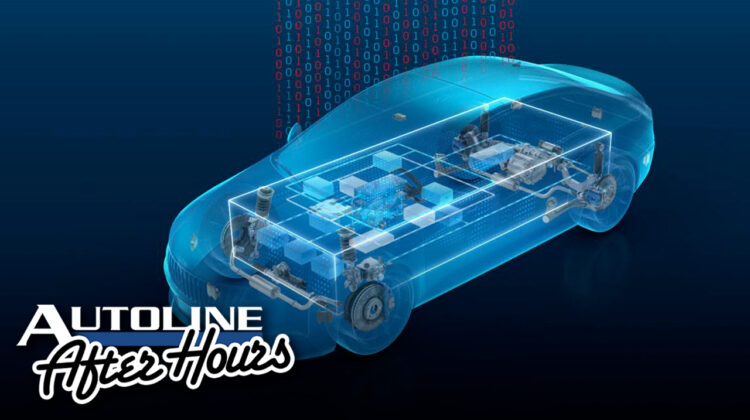
Listen to “AAH #677 – Why Legacy OEMs Lack the Mindset to Develop Tomorrow's Cars” on Spreaker.
– 100 year old processes and procedures vs. the need to develop things fast
– Fear of litigation vs. being 1st to market
– Detroit vs. Silicon Valley in hiring top talent
PANEL:
Mark Wakefield, Alix Partners
Sam Abuelsamid, Guidehouse Insights
Gary Vasilash, on Automotive
John McElroy, Autoline.tv
Follow us on social media:
Thanks to our partners gardnerweb.com and WardsAuto.com for embedding our show!
Subscribe to the free podcast:





Dear John & Gary,
I’m a real car guy and seeing where the industry is going, is a disaster waiting to happen. Now I will explain why. I spent over thirty years in entry-level desktop to remote radio frequency data capture working environment temperatures from 85F to -45F. Some of the issues that will arise are battery life, screens, and more. The vitally important problem is reliability with components such as chips, wafer boards, and connectors.
As a Canadian, winter plays a big role in the reliability and durability of a vehicle.
The direction that the auto industry is going is a battery-powered electronic toy with four wheels driving itself down the highway without human intervention. Infotainment and connectivity are distractions for a serious driver etc.
In summary, the auto industry should have better emission controls, and better fuels like Hydrogen, LPG, etc., rather than home-grown electronic gadgets that go from your living room to your vehicle.
Watching your show today for a car guy was like watching paint dry!!! Sorry gentleman.
Happy New Year 2024.
Automakers should look at companies like Amazon owned Ring. See how many buyers keep the subscription 1-2 years into ownership. Especially when they hiked the cost 40%. Or look at OnStar. Its available on almost every GM product and how many subscribe? So, if you really think that’s the way to go they should expect about the same percentage of adaptation. Not only that, when the economy takes a downturn and people look for ways to save money thats when the Gym membership, streaming service and extras get cut from the budget. So when automakers count on that for a revenue stream when things get tight they will be hit even harder.
Towards the end, Mark mentioned “7 year life cycle for support of a vehicle”, which I assume he was referring to the current average time of car ownership. This could very well end up being the defining time period for ‘support’ (e.g. upgrades/security patches).
This is another area where auto manufacturers will have to weigh the profit (selling services) vs. costs (to maintain support). Even Microsoft and Ubuntu only support their OS’s for about 5 years on average as they know it’s not profitable beyond this (excluding supporting super old versions like Windows XP and really old Ubuntu versions, which they have discovered is very profitable).
Just to take one example (because OS’s are being put in everything), cars are, however, very different from appliances like refrigerators, washing machines, ovens, etc,, which also are adopting the use of operating systems for selling upgrades/services (and discovering the cost of support for 20+ years will be an issue) as appliances are typically ‘one-owner’ then junked.
So up to 7 years support (3-5 years upgrades/ 7 years security?) sounds pretty reasonable.
As usual, great insights and statistics, thanks for sharing!